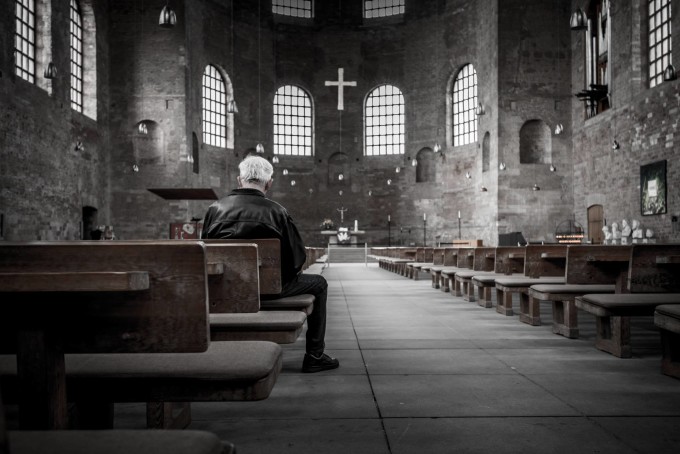back to journal

A Year Through the Gospels: Week 7
February 18, 2016
Darryl Sluka
This is the seventh installment in a yearlong series. You can find the previous installments here.
Instead of posting some of my new discoveries in John this week, I decided to post about one of my favorite passages that I always enjoy coming back to.
John 4:7–26 The Woman at the Well
“A woman of Samaria came to draw water.
“Give Me a drink,” Jesus said to her, for His disciples had gone into town to buy food.
“How is it that You, a Jew, ask for a drink from me, a Samaritan woman?” she asked Him. For Jews do not associate with Samaritans.
Jesus answered, “If you knew the gift of God, and who is saying to you, ‘Give Me a drink,’ you would ask Him, and He would give you living water.”
“Sir,” said the woman, “You don’t even have a bucket, and the well is deep. So where do You get this ‘living water’? You aren’t greater than our father Jacob, are You? He gave us the well and drank from it himself, as did his sons and livestock.”
Jesus said, “Everyone who drinks from this water will get thirsty again. But whoever drinks from the water that I will give him will never get thirsty again—ever! In fact, the water I will give him will become a well of water springing up within him for eternal life.”
“Sir,” the woman said to Him, “give me this water so I won’t get thirsty and come here to draw water.”
“Go call your husband,” He told her, “and come back here.”
“I don’t have a husband,” she answered.
“You have correctly said, ‘I don’t have a husband,’” Jesus said. “For you’ve had five husbands, and the man you now have is not your husband. What you have said is true.”
“Sir,” the woman replied, “I see that You are a prophet. Our fathers worshiped on this mountain, yet you Jews say that the place to worship is in Jerusalem.”
Jesus told her, “Believe Me, woman, an hour is coming when you will worship the Father neither on this mountain nor in Jerusalem. You Samaritans worship what you do not know. We worship what we do know, because salvation is from the Jews.But an hour is coming, and is now here, when the true worshipers will worship the Father in spirit and truth. Yes, the Father wants such people to worship Him. God is spirit, and those who worship Him must worship in spirit and truth.”
The woman said to Him, “I know that Messiah is coming” (who is called Christ). “When He comes, He will explain everything to us.”
“I am He,” Jesus told her, “the One speaking to you.””
On His way to Galilee from Judea, Jesus stops in the Samaritan town of Sychar. Here, He strikes up a conversation with a woman drawing water from the well, and their conversation quickly becomes a religious one. Jesus tells the woman something that He has yet to tell anyone in John’s gospel. He tells openly and bluntly that He is the Messiah. I always find it fascinating that Jesus chooses this woman at a well in Samaria to be the first person He openly confides in about who He is. Not even to Nicodemus did He say such things, and Nicodemus seems like he would have been a much better person to tell: he was a religious leader with authority and influence. Others had believed Jesus was the Messiah (John the Baptist, some of John’s disciples, those whom Jesus called, possibly Nicodemus), but this woman is the first one that Jesus actually tells outright about who He is. Who was this woman to receive such an announcement? She was a woman who had had manny husbands, lived with a man she was not married to, probably had a negative reputation because of her previous husbands and her current lifestyle choices, and she was a Samaritan. She was the furthest thing from the type of person you would expect Jesus to reveal Himself to. However, His choosing of her was consistent with the rest of His ministry. We often see Jesus associating with and ministering to those who are considered outcasts or sinful. These are Jesus’ people, and they are the ones He came to save, as He said in Matthew 9:9–13
“As Jesus went on from there, He saw a man named Matthew sitting at the tax office, and He said to him, “Follow Me!” So he got up and followed Him. While He was reclining at the table in the house, many tax collectors and sinners came as guests to eat with Jesus and His disciples.When the Pharisees saw this, they asked His disciples, “Why does your Teacher eat with tax collectors and sinners?” But when He heard this, He said, “Those who are well don’t need a doctor, but the sick do.Go and learn what this means: I desire mercy and not sacrifice. For I didn’t come to call the righteous, but sinners.””
When you look at the character of Jesus, who He was, and what He did, it makes a lot of sense that He openly revealed Himself to this Samaritan woman. Jesus went to the sick because the sick are the ones who know they need help. He rejected the Pharisees because of their desire to remain in control, but he had a discussion with Nicodemus because he had ears to hear. He spoke with this woman because she knew she needed help, and he revealed Himself to her because she was willing to take His message and proclaim it to those around her, which she did at the end of their conversation. What an honor Jesus gave this woman.